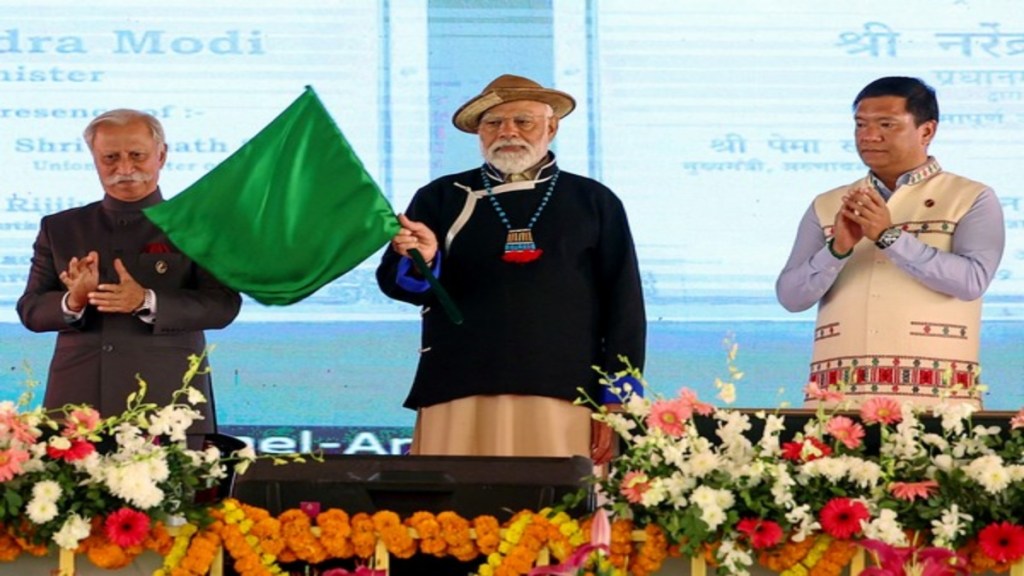India firmly rejected China’s assertion that Arunachal Pradesh, where Prime Minister Narendra Modi recently inaugurated a significant infrastructure project, belongs to China. The ongoing dispute over Arunachal Pradesh, which China refers to as “Zangnan” or South Tibet, has led to verbal sparring between the two nations.
The Indian Ministry of External Affairs dismissed China’s objections to PM Modi’s visit, emphasizing that such visits are routine and do not alter the state’s status as an integral part of India.
Official spokesperson of External Affairs Ministry Randhir Jaiswal reiterated India’s stance, stating that Arunachal Pradesh has always been and will remain an inseparable part of India.
What did the Ministry of External Affairs say?
“We reject the comments made by the Chinese side regarding the visit of the Prime Minister to Arunachal Pradesh. Indian leaders visit Arunachal Pradesh from time to time, as they visit other states of India,” external affairs ministry spokesperson Randhir Jaiswal said.
“Objecting to such visits or India’s developmental projects does not stand to reason. Further, it will not change the reality that the state of Arunachal Pradesh was, is, and will always be an integral and inalienable part of India,” he said. The Chinese side, Jaiswal said, has been “made aware of this consistent position” on several occasions.
Despite China’s persistent claims, India has consistently communicated its position on Arunachal Pradesh to the Chinese side. China’s foreign ministry spokesperson Wang Wenbin reiterated China’s stance during a media briefing, expressing opposition to India’s development projects in the region and asserting that the boundary issue between the two countries remains unresolved.
India’s infrastructure development in Arunachal Pradesh, including the inauguration of the Sela Tunnel, aims to enhance connectivity and facilitate rapid deployment of troops and equipment near the Line of Actual Control (LAC). Built by the Border Roads Organisation (BRO) at a cost of Rs 825 crore, the tunnel is the world’s longest twin-lane tunnel, providing all-weather connectivity and facilitating the swift deployment of troops and equipment near the Line of Actual Control (LAC) in the Tawang sector.
These projects are part of India’s efforts to strengthen infrastructure along the border, particularly in Ladakh, where tensions between the two countries persist. India has emphasized that normalization of bilateral relations with China hinges on achieving peace and stability in the border areas, highlighting the importance of resolving territorial disputes through dialogue and diplomacy.

